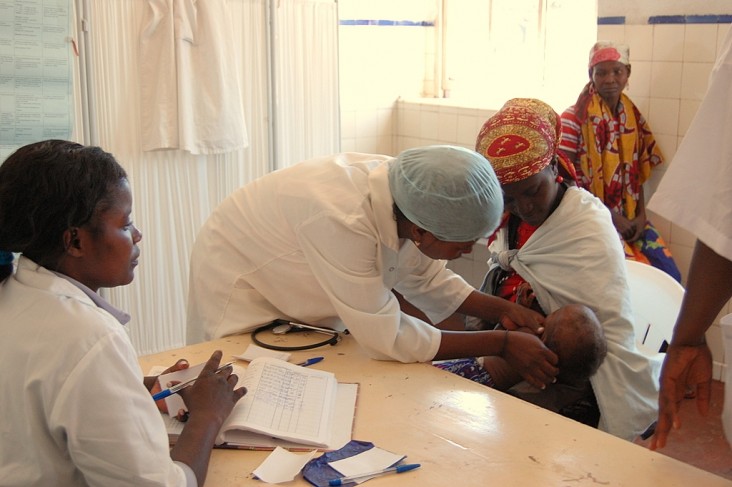
As chief nurse at the Benfica Baixa Health Center in the city of Huambo, Maria has treated malaria patients with a wide range of medications. Recently, she has begun using artemether-lumefantrine (also known commercially as Coartem®) in place of the old standbys, chloroquine and amodiaquine. According to Maria, the differences between the old drugs and the new one are striking. “Coartem is the best drug we have. With Coartem, 100 percent of patients with malaria are cured. With the other drugs, many people come back with malaria because of resistance,” she said.
To date, 55 health facilities in Huambo Province have begun using the new drug. Through USAID, the President’s Malaria Initiative has obtained 5.6 million treatment courses of Coartem and distributed them to all 18 provinces, helped improve the drug logistics system, and trained health workers.
The new drug’s arrival could not be timelier, with malaria parasite resistance levels estimated at 50 percent with chloroquine. Resistance to Coartem has not yet been observed, meaning that those who were once treated with partially effective or ineffective drugs now have a chance of being completely cured. In addition to the medication’s improved effectiveness in clearing parasites, Maria said that with it “we don’t encounter many negative side effects,” so patients are more likely to complete their treatments.
With the planned rollout of Coartem to all health facilities in the province, followed by expansion to other provinces, large numbers of Angolans will finally have an effective weapon against the country’s number one killer. Patients are already beginning to ask for the drug when they go for consultations. Maria said, “They come in and ask for ‘that new drug for malaria with the pills in a card. That’s the one that helped my baby.'”







Comment
Make a general inquiry or suggest an improvement.